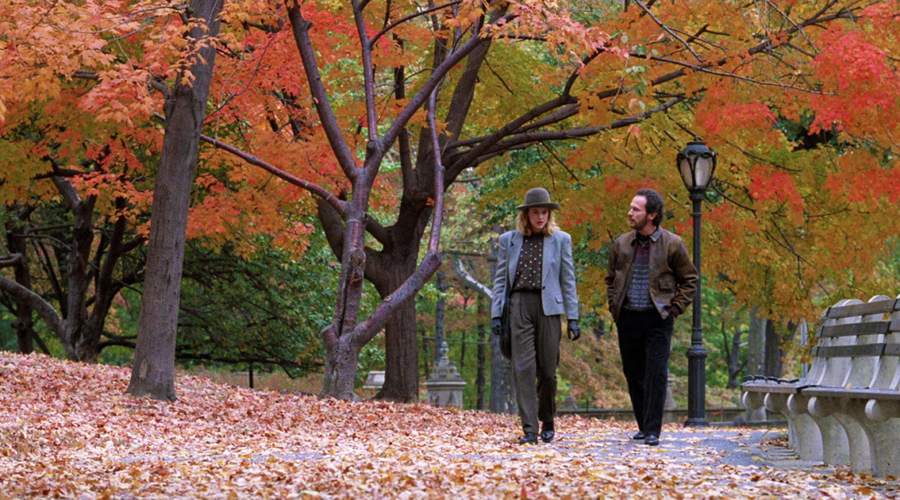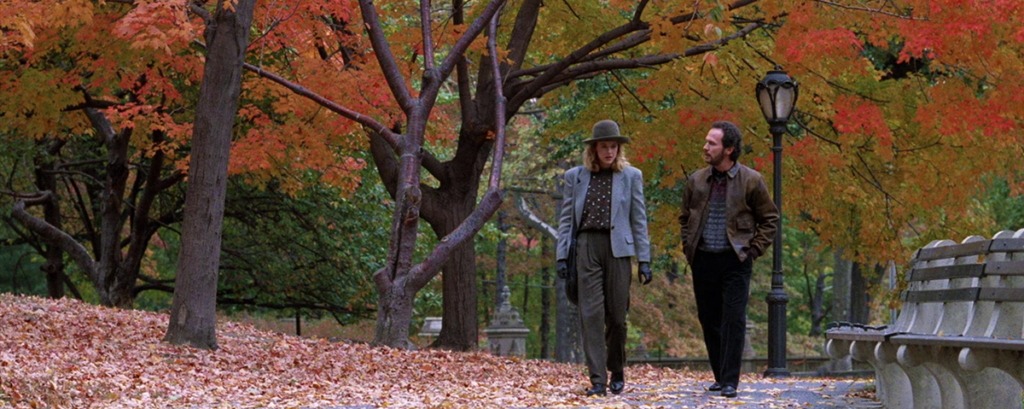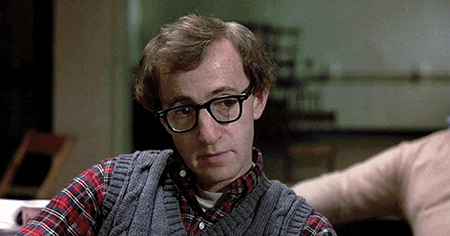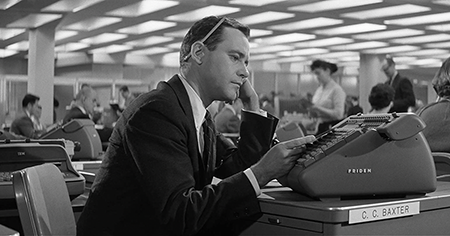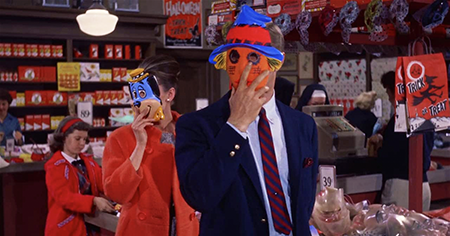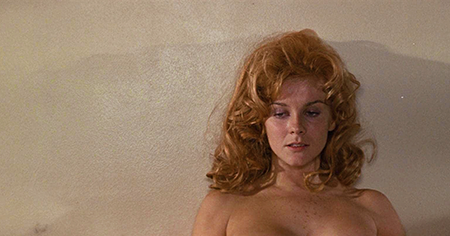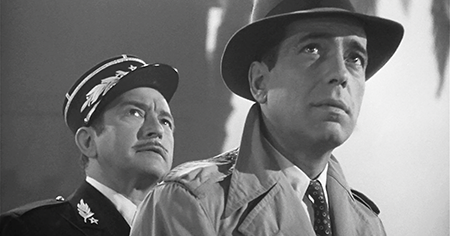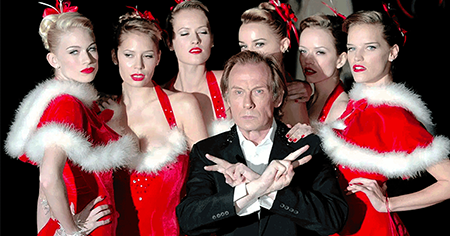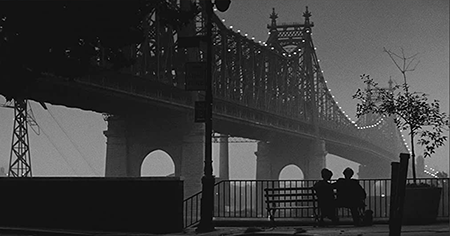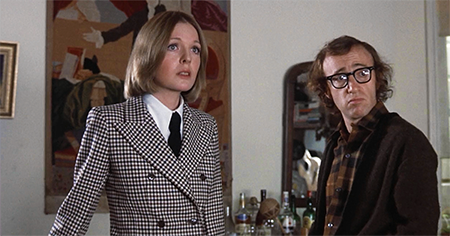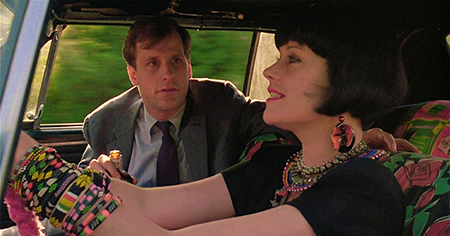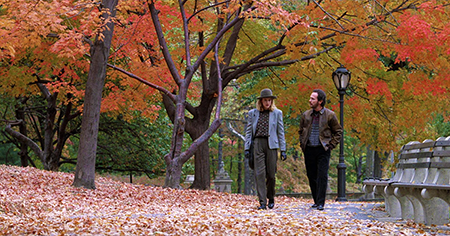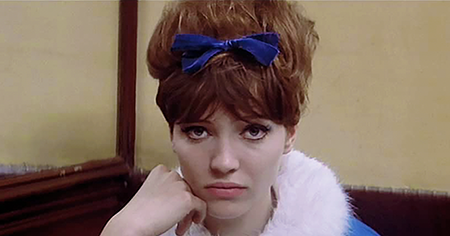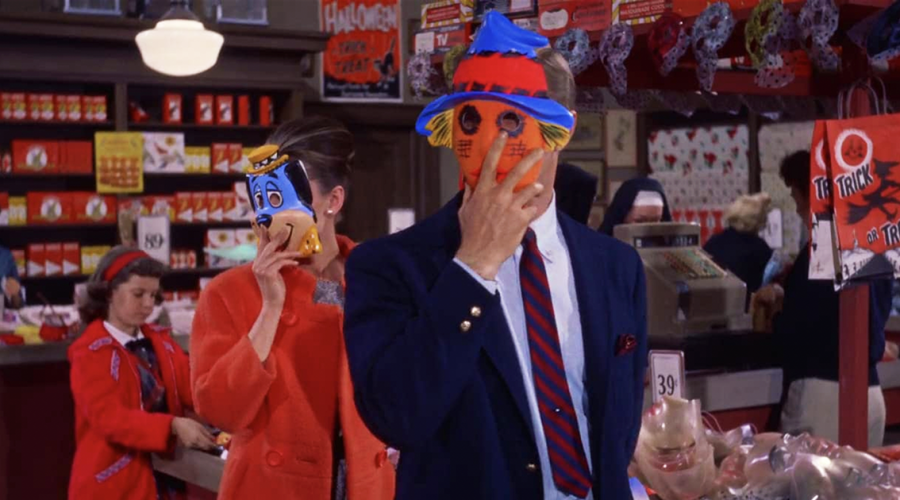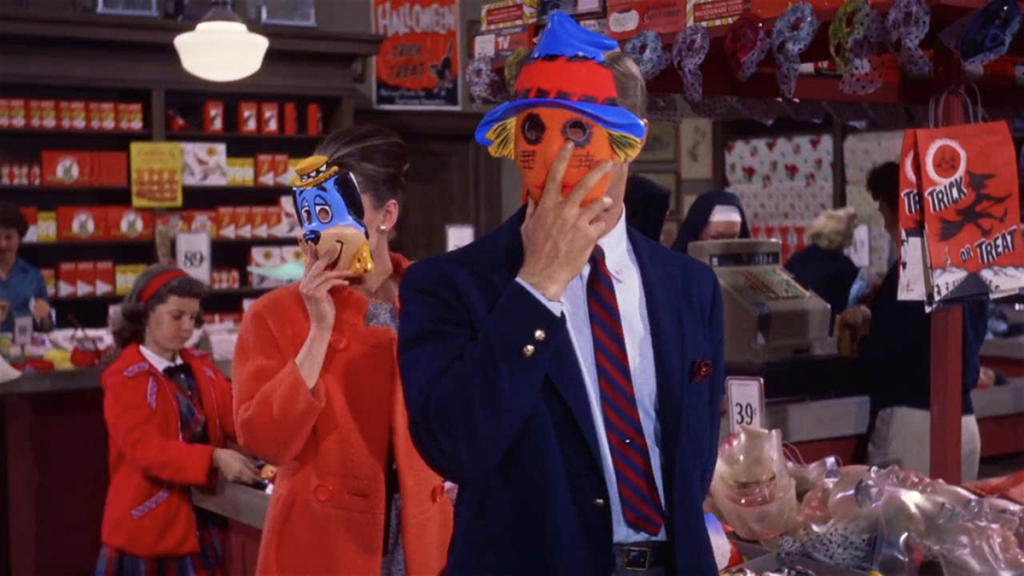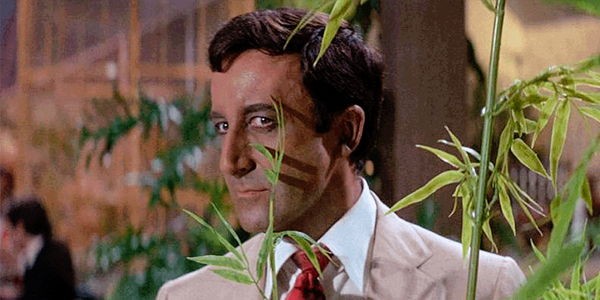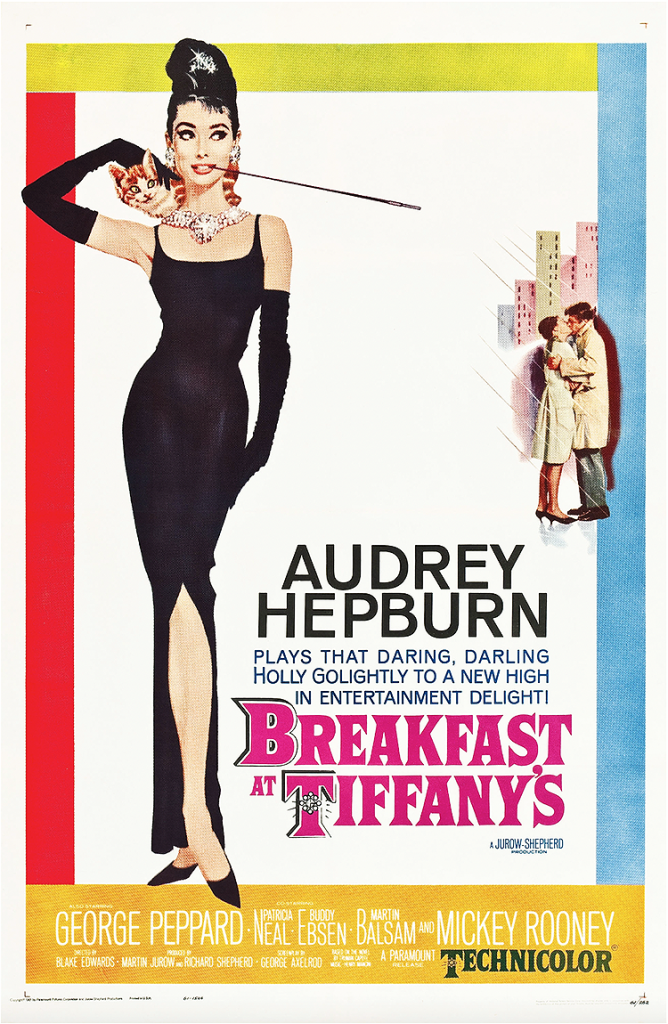A Little Romance
A Littte Holiday Cheer
A diverse assortment of Valentine’s treats that offers something for everyone. from traditional romantic comedies to more adventurous fare
by the Cineluxe staff
updated January 20, 2024
While not everything in our quirky roundup falls within the more formulaic definition of a romantic comedy, all of the picks display a common lineage and fit comfortably under the something-to-watch-for-Valentine’s-Day umbrella. But it’s a beyond sad sign of the times that of the hundreds of reviews we’ve done, we weren’t able to find any recent films that even remotely fit the required bill, so we had to rely solely on classics instead. Woody Allen’s Annie Hall, Manhattan, and Play It Again, Sam are rightly included here, but we flirted with also including The Purple Rose of Cairo, Hannah and Her Sisters, and even Mighty Aphrodite and A Midsummer Night’s Sex Comedy since almost all of Allen’s best films are romantic comedies at heart. As for the fringier choices: Carnal Knowledge is far more pungent than sweet but offers a biting take on romantic conventions—as does Godard’s surprisingly accessible A Woman Is a Woman. And Casablanca, of course, isn’t a comedy. But it’s undeniably a romance, and pairs nicely—if a little obviously—with Allen’s Sam as a satisfying movie night.
“Forget that this is supposed to be a romantic comedy. Forget about its Oscars. Forget about the well-heeled mob of Hollywood conformists bleating for Woody Allen’s blood. Approach Annie Hall as an adventurous and innovative and unusually honest piece of filmmaking and you’ll get the chance to experience—or re-experience—one of the best American films of the final quarter of the last century, the movie that helped start the wave that brought New York back from the dead, for better or worse.” read more
“I can’t say I love this film, but I do admire it, and I found the experience of filtering the past and present of the culture through it if not enjoyable exactly, then intriguing and unsettling and ultimately gratifying. You should watch The Apartment, if you haven’t seen it or haven’t seen it in a while. It’s got some real meat on its bones; and it’s an invaluable snapshot of a both tangible and illusory but undeniably decisive, invigorating—and I would argue, squandered—moment in time.” read more
“It’s a little too obvious to begin a review of Tiffany’s with Audrey Hepburn, but how can you not? What she does with her character is still breathtaking, somehow managing to stay true to the depth and nuance of Truman Capote’s original conception of Holly while shepherding her through all the standard-issue Hollywood attempts to blandify her, emerging with a conception that’s somehow able to synthesize and transcend both.” read more
“Since Knowledge isn’t considered a ‘big’ movie, who knows if it will ever receive the restoration or 4K bump-up it more than deserves. But there are classics of the marketing-driven, ‘I loved that when I was a kid’ kind, and then there are true classics, as in legitimate works of cinematic art. Carnal Knowledge falls solidly in the latter camp and ought to be on the short list of films worth seeking out for anyone who hasn’t yet encountered it.” read more
“I don’t have much to say about the movie itself since countless volumes, most of them paperweights, have already been written about it and trying to counter the consensual view would be like trying to push water. But I would like to emphasize how sophisticated—mature—Casablanca is, like many of the films of the ’40s—far more so than their counterparts today, which show little interest in rising above the adolescent wallowing that’s the basic price of admission to contemporary cinema.” read more
“If you’ve never seen Love Actually and you need a little silly and adorkable escapism this holiday season, this is well worth the price of a download. Will it change your life? No. But if you don’t find yourself guffawing through tears by the time the end credits roll, you’ve got the heart of a Grinch.” read more
“Woody Allen has said his biggest regret is that he’s never made a great film. I’m not sure what his criteria are for determining that but by any yardstick I’m aware of, Manhattan is a great film, undeniably (to use a much abused and poorly understood term) a classic. It’s so strong it might even survive the efforts to erase his career, even though it’s frequently waved around as Exhibit A in the culture wars.” read more
“This is a decidedly minor movie made in the somewhat frivolous style director Herbert Ross (The Goodbye Girl, Footloose) was known for, and all involved had to have known they were devoting their energies to what was basically a throwaway. But Play It Again, Sam is still well worth watching 50 years on, partly because the lines still deliver but mainly because it was the incubator or springboard (pick your metaphor) for everything that would be great about Woody Allen’s later work.” read more
“This is the closest Jonathan Demme ever got to doing a really good movie, and it succeeds mainly because of a rock-solid script and still astonishing performances by Jeff Daniels and newcomer Ray Liotta and, to a lesser degree, Melanie Giffith. If it were possible to scrape away all the hip-political gingerbread Demme spread indiscriminately over the proceedings, Something Wild might just possibly qualify as great. But all that utterly extraneous gunk is now so congealed and ossified that you constantly have to peer around it to discern the movie’s strengths.” read more
This isn’t technically a review but instead Men in Black director Barry Sonnenfeld’s thoughts on shooting this seminal romantic comedy for Rob Reiner and his reflections on how his work as cinematographer fared in the recent 4K release of the film. read more
“There is really only a handful of movies that qualify as true classics, a number small enough to rest comfortably in the palm of your hand; films that transcend the zeitgeist, fleeting emotional attachments, and the aura created by relentless marketing and that tap into far deeper and more sustaining currents than the vast majority of fare. This is one of them. But given the aversion, which still persists, to foreign films—or at least to the ones that don’t try to ape American films—it’s necessary to make the case a little more forcefully here than you have to for the Hollywood standards. So let’s try this: You can’t say you know and love movies if you haven’t at least tried Godard. And possibly the best place to begin that journey is the current release of A Woman Is a Woman.” read more
© 2024 Cineluxe LLC
